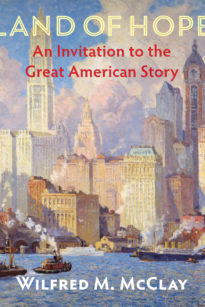In Land of Hope, Wilfred M. McClay has produced an authoritative and compulsively readable history book that offers readers an honest exploration of America’s past. Land of Hope is a refreshing antidote to the plethora of fashionably fractured views of American society and a formidable challenge to Howard Zinn’s A People’s History of the United States, the default textbook in so many classrooms across the country. In the interview below, McClay explains the trouble with how American history is taught today, why a grasp of our history is so essential to being an informed citizen, and why there is a hunger for a non-partisan telling of America’s story.
Encounter: Why is a new history of the United States necessary? Why now?
McClay: We have long had a need for a well-written and appealing history of the United States that, while being informed by the best scholarship, does not lose sight of the big picture about our nation’s admirable and exceptional history. Too many of today’s textbooks are overburdened with detail and disfigured by partisan animus, and leave students of the American past confused, ill-informed, and unprepared for the task of citizenship in a free society.
Encounter: Not long ago, Americans shared a basic consensus regarding our history. How did Americans lose confidence in their own story?
McClay: Some of this came about for reasons that are entirely commendable. We have had, and continue to have, serious national problems, such as our problems of racial inequality, missteps in our relations with other nations, and other problems that show us to be in conflict with our national creed and our deepest values. We are very far from being perfect, and it has been important for Americans to face up to these problems, rather than pretend that they do not exist. Self-criticism is both healthy and necessary in our form of government. The trouble comes when the self-criticism loses all sense of perspective, and becomes relentless and corrosive, taking the nation’s flaws as the totality of its being. We have to agree before we can disagree. The loss of basic consensus, and the consequent erosion of our sense of patriotic membership and national unity, have made the solution to our problems far more difficult.
.
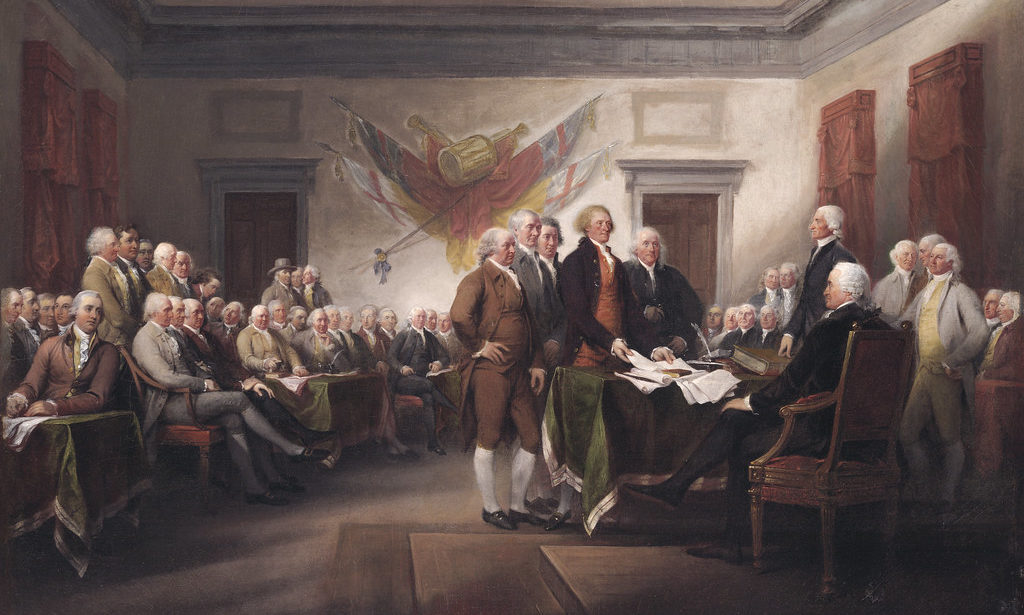
We have long had a need for a well-written and appealing history of the United States that does not lose sight of the big picture about our nation’s admirable and exceptional history.
Encounter: Jefferson wrote that citizens should be “rendered by liberal education worthy to receive, and able to guard the sacred deposit of the rights and liberties of their fellow citizens.” Can one properly serve as a citizen without a grasp of history?
McClay: No, it isn’t possible. We need to know about the past that shaped us, and shaped all the people and institutions that surround us. This is part of what it means not only to be a good citizen, but to understand the fullness of our humanity. We did not call ourselves into being out of the void. Each of us was born into a world we did not make, a world that has shaped what is possible for us, and to which we have had to be responsive at every turn. And furthermore, we can cannot fully appreciate the preciousness of the rights and liberties of which Jefferson spoke unless we see them against the background of all of human history, in which the flourishing of such rights and liberties has been extremely rare and always fragile. We take for granted the principles of liberty and equality that make up our national creed, as if they were the natural, default position of the human race. Nothing could be further from the truth.
Encounter: How did we lose this discipline in education?
McClay: I think the loss of history itself as a discipline, in favor of “social studies,” was one of the chief landmarks in our downward path.
Encounter: Do the U.S. history courses taught in most classrooms have an agenda?
McClay: That is hard to say. Some teachers bring a progressive outlook into the classroom. And it is not always a bad thing for good teachers to have a strongly held point of view, whether conservative or progressive, if they also have a commitment to the pursuit of the truth, and if they encourage a lively and open classroom, in which a diversity of perspectives is encouraged. A great many students will tell you that their favorite teacher was someone with whom they consistently disagreed and were allowed to disagree.
But my own work with teachers in various parts of the country suggests to me that there are a great many excellent and dedicated teachers in this country who try very hard to play it down the middle, and teach young people how to think historically about events, and yet have to struggle with the clunky, poorly written textbooks that are available to them. We are hoping that Land of Hope can be an alternative for them.
Encounter: What are students missing when they learn history in the context of the AP exam?
McClay: “Teaching to the test” is a perennial danger in education, and the AP exam is no exception. It’s been made worse in recent years by the College Board’s constantly tinkering with the exam, and interjection of themselves into what teachers actually teach in AP courses, by vetting the syllabi of those teachers that they certify. The AP exam used to be the gold standard for academic achievement, but it no longer has that status. I’m not sure how the College Board can repair the damage it has done to itself in that regard.
But even if the test were above reproach, it remains the case that the study of history, and particularly of American history, should never be constrained by the requirements of a particular exam. Students should learn that history is not merely an inert account of self-explanatory details, but is a task of reflection that calls to our deepest sense of our humanity. And learning our history, the history of our own country, is part and parcel of learning who we are, and learning about the society of which we are already a part.
.
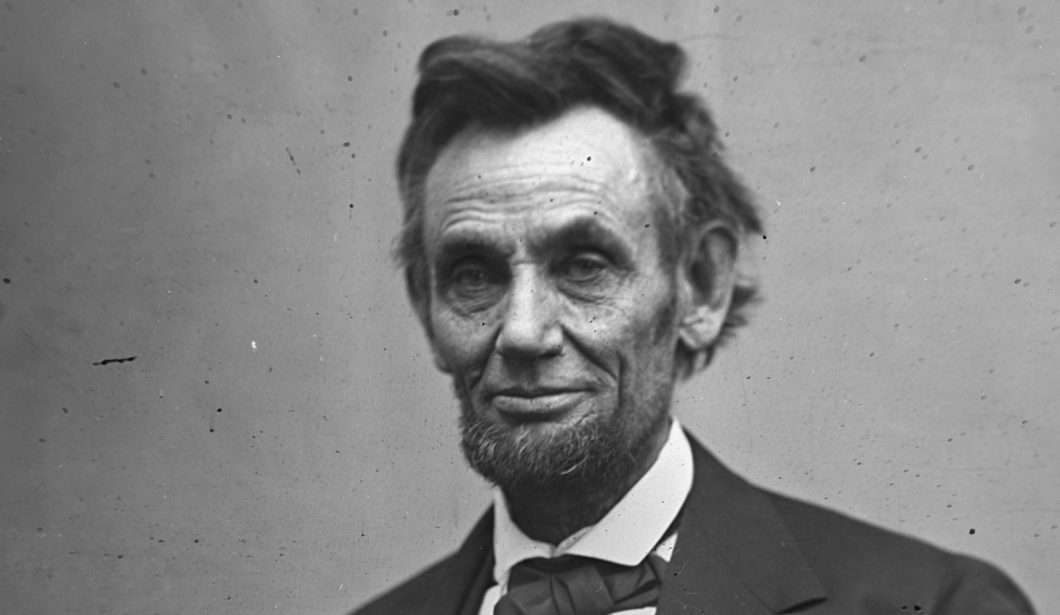
Students should learn that history is not merely an inert account of self-explanatory details, but is a task of reflection that calls to our deepest sense of our humanity.
Encounter: Howard Zinn said that his goal in writing A People’s History of the United States was to create a “quiet revolution” in our understanding of American history. Did he succeed in that endeavor?
McClay: Yes and no. He succeeded in unsettling many aspects of the consensus in which American historical writing was embedded. He did this to an astonishing degree, particularly since he was not himself a historian. But he did not succeed in providing a substitute account of American history that goes beyond simplistic melodrama. Most honest historians will acknowledge that, even if they are sympathetic to Zinn’s leftist politics.
Encounter: Why was Zinn’s account so popular?
McClay: It is engagingly written, and gives a simple-minded, moralistic, account of the past as the struggle between the white hats and the black hats, the Children of Light and the Children of Darkness. For some people, including many Americans who have felt disillusioned by our national flaws, this has been irresistible.
Encounter: Americans on the left and right seem to have their own versions of our history. How do we bridge that gap?
McClay: This is going to be a great challenge. But part of it will involve clearing our minds of cant and illusion. In this respect, I think that a certain kind of pop postmodernism has done us a great disservice in undermining the idea that there can be truth in history, preferring the lazy and self-serving idea that “narrative is all,” and your narrative and my narrative are equally good, since they are “ours” and are therefore incontestable. But truth is the basis of our common world. We cannot have a common world unless we can agree on its contours. So this “my narrative” business cannot be sustained.
That said, as I insist in Land of Hope, history itself is a narrative, and is best related and studied as a story, one whose contours we agree about. And some part of that involves agreeing not only about the facts of American history but about its larger trajectory. History can tell us a lot about that, although history cannot predict the future, and always stumbles when it tries. But as countless writers have observed, what most closely binds a people is the remembrance of its past, and of those who have sacrificed to make the future possible. One of the most deplorable aspects of the present environment has been its tendency to condescend to the past, a tendency that has even found expression in the wholesale vandalism of the past. Edmund Burke once observed that “people will not look forward to posterity who never look backward to their ancestors.” When we lose the past, we also lose the future.
Encounter: What are popular historians most often getting wrong?
McClay: I would say that they tend almost reflexively to see modern phenomena such as the growth of the power of the national government and of the Presidency, the creation of supranational organizations like the United Nations, the globalization of the economy, the rights revolution of the post-1960s era, etc., as inevitable forces of nature, “the arc of history,” and such; and the diminishment of the Constitution and the loss of its ingenious design to disperse power as equally inevitable. These are short-sighted and mistaken attitudes. Almost nothing in history is inevitable, and almost nothing in history is permanent. And while history cannot be reverse, some of its effects can be, and the ill consequences of what seemed obvious to previous generations have a way of manifesting them in the fullness of time. In particular, the Constitution’s many virtues are more apparent today, or ought to be by now, that they were a hundred years ago when Progressives were so intent upon getting rid of it.
In short, whenever you hear someone begin to speak of “the judgment of History,” grab a spoonful of salt, since what is coming next is likely nothing more than the judgment of the smug and self-satisfied Present.
.
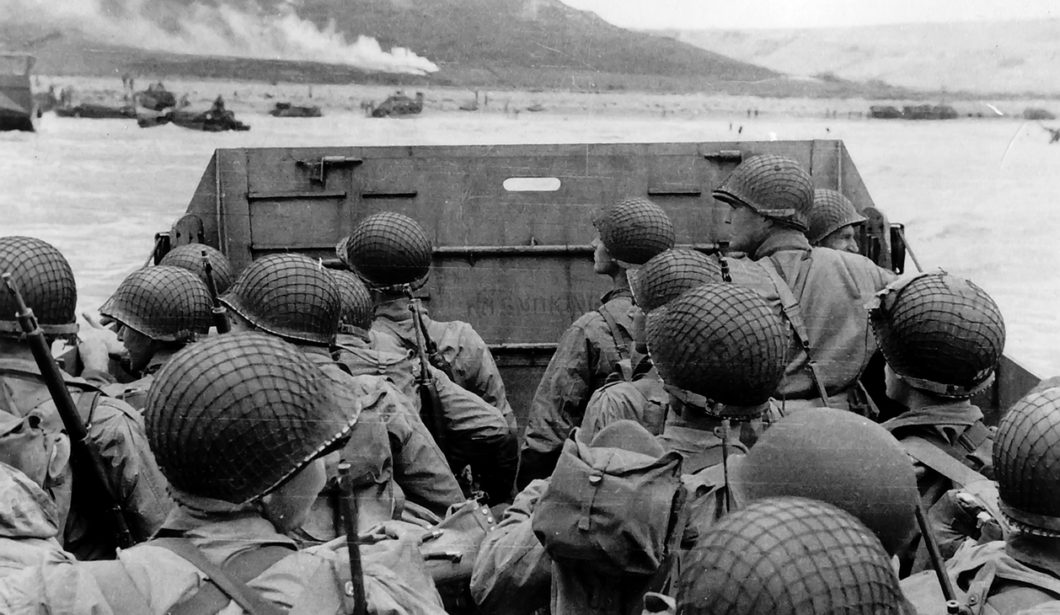
History itself is a narrative, and is best related and studied as a story, one whose contours we agree about. And some part of that involves agreeing not only about the facts of American history but about its larger trajectory.
Encounter: Can you highlight some consequential moments in our history that mainstream accounts ignore?
McClay: It’s less a matter of moments ignored than it is of moments willfully misunderstood. This has something to do with the bias toward the growth of government that I mentioned above. I’m struck by how unfair historians are to the Republican presidents of the 1920s, and particularly Calvin Coolidge, who was a man of remarkable gifts, learning, and wisdom, an admirably modest man of unimpeachable moral character, and a highly successful president whose name became synonymous with national prosperity, but whom a great many mainstream historians treat as a joke, even when they know better. By the same token, the incoherence and ineffectiveness of Franklin Roosevelt’s New Deal always come in for very soft treatment. Little attention is paid to the central role of the Democratic party in promoting and preserving racial segregation in the South, or to the Republicans’ far more enlightened history. And the list goes on. The problems get worse from 1960 on.
Encounter: In writing the book, did any episodes in our history take on new meaning?
McClay: Oh yes, a great many of them! I chose the title Land of Hope as a tentative one, to be used as a placeholder as I was writing the book. But it became a leitmotif as I proceeded, and again and again I found it to be a phrase freshly illuminating one episode after another in American history, describing not only the way that so many people have been drawn to come to America for its entire history, but also an explanation of why we sometimes feel such severe and disproportionate disappointment with ourselves. Even Howard Zinn’s readers are a part of this; they too harbor high hopes, against which they measure America and find it wanting. We really are a land of hope, even for our internal detractors. How many nations and peoples can say the same?
Encounter: How would you describe a “patriotic” education?
McClay: We all have an instinct for patriotism, for love of what is our own, for the community of which we are members. But a patriotic education needs to be something much more than that. It is an informed and reflective education, one that prepares men and women for citizenship, while acquainting them with the national story of which they are already a part. It involves instruction both in the American creed, in those ideals and values we hold dear, and in the American story, which is the past that we share, and in which those ideals and values have been embedded and by which they have been carried forward.
.
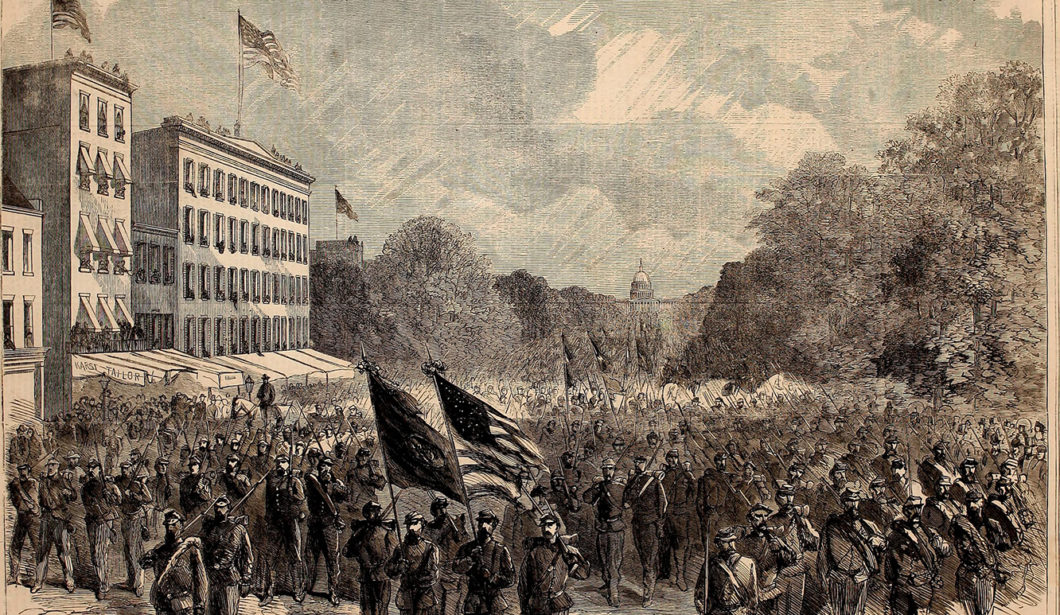
Almost nothing in history is inevitable, and almost nothing in history is permanent.
Encounter: Despite the breakdown of history in education, there seems to be a hunger for history in our broader culture. Are Americans ready to reclaim their story?
McClay: Yes, I think they are. I hope they are. It is a natural instinct, after all, for us to want to know and understand that from which our own existence has sprung. It is an instinct that can be dulled into near-oblivion by the various drugs and distractions of our media-drugged and device-ridden culture. But it is denied only at great expense. There is something incredibly poignant about the memoirs one sees, of adoptees trying later in life to locate their birth mothers, their missing fathers, their biological antecedents. What they are looking for, on a personal scale, is what those of us who are deprived of our history are, or will be, looking for.
The hunger is there, and the solution is not more Zinnification of history. That actually works toward a greater and greater inattention to the details of history. The solution is to write histories that will nourish the body and spirit of those who seek to be fed by them.
